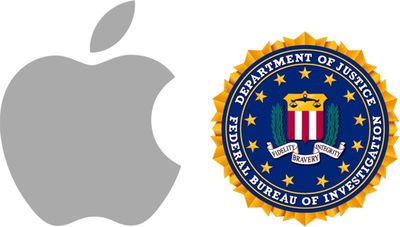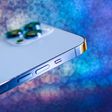Apple's ongoing fight with the U.S. government over an order that would require the company to unlock the iPhone 5c used by San Bernardino shooter Syed Farook has come to an end, after the Justice Department today announced plans to drop its case against Apple.

In a motion asking the court to vacate the original order, prosecutors said the FBI has been able to access the data stored on the iPhone 5c without Apple's help, reports CNBC. From the court filing:
Applicant United States of America, by and through its counsel of record, the United States Attorney for the Central District of California, hereby files this status report called for by the Court's order issued on March 21, 2016.
The government has now successfully accessed the data stored on Farook's iPhone and therefore no longer requires the assistance from Apple Inc. mandated by Court's Order Compelling Apple Inc. to Assist Agents in Search dated February 16, 2016.
Accordingly, the government hereby requests that the Order Compelling Apple Inc. to Assist Agents in Search dated February 16, 2016 be vacated.
Apple was scheduled to square off against the FBI in court on Tuesday, March 22, but just a day ahead of when the court date was set to take place, the FBI asked for a temporary postponement as it had discovered a way to access the iPhone that would not require Apple's participation.
It later came out that the FBI had enlisted the help of Israeli mobile software developer Cellebrite, a company that offers "mobile forensic solutions" to help law enforcement agencies crack the encryption on smartphones to access data. The government has not disclosed the method used to obtain the information on the iPhone, stating only that it has been retrieved.
The withdrawal of the case brings the heated battle between Apple and the U.S. government to a close. The two have been fighting a very public debate over encryption and personal privacy, which kicked off when a court ordered Apple to help the FBI unlock the iPhone 5c in question.
Unlocking the iPhone would have required Apple to build a new version of iOS that bypassed iPhone passcode restrictions and provided the FBI with a way to enter passcodes electronically, something Apple staunchly refused to do as it would set a dangerous precedent for the future of device encryption.
Update: Apple has provided an official statement on the dismissal of the lawsuit.
From the beginning, we objected to the FBI's demand that Apple build a backdoor into the iPhone because we believed it was wrong and would set a dangerous precedent. As a result of the government's dismissal, neither of these occurred. This case should never have been brought.
We will continue to help law enforcement with their investigations, as we have done all along, and we will continue to increase the security of our products as the threats and attacks on our data become more frequent and more sophisticated.
Apple believes deeply that people in the United States and around the world deserve data protection, security, and privacy. Sacrificing one for the other only puts people and countries at greater risk.
This case raised issues which deserve a national conversation about our civil liberties, and our collective security and privacy. Apple remains committed to participating in that discussion.
Note: Due to the political nature of the discussion regarding this topic, the discussion thread is located in our Politics, Religion, Social Issues forum. All forum members and site visitors are welcome to read and follow the thread, but posting is limited to forum members with at least 100 posts.





















